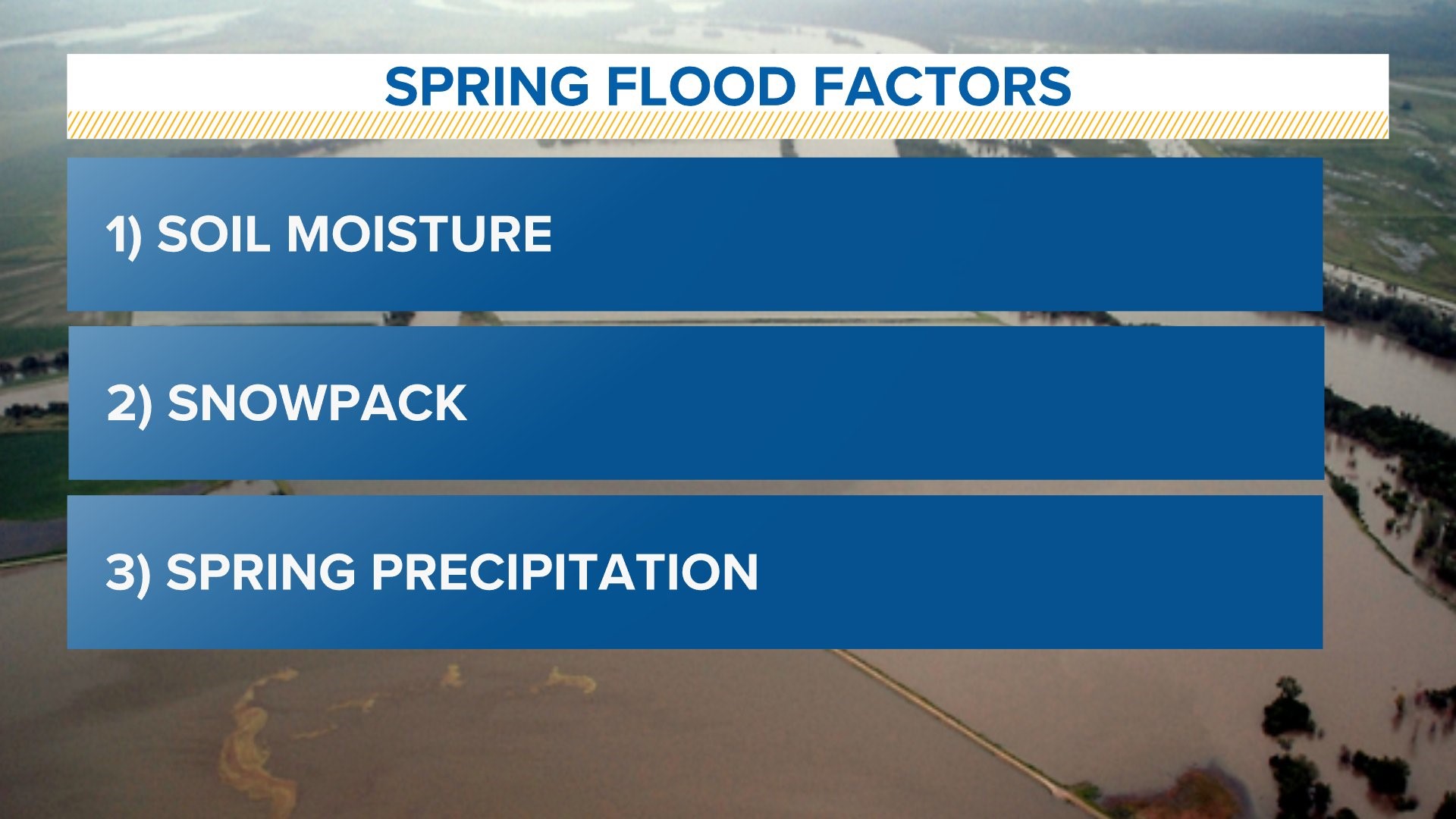DES MOINES, Iowa — With the Missouri River to the west, the Mississippi River to the east and the Des Moines and Raccoon Rivers directly in central Iowa, the dangers of spring flooding are all too familiar for Iowans.
In fact, the concern for widespread flooding pops up nearly every spring, especially after the winter snow has melted.
Although many of the state's most notorious flood events occurred in the summer months, spring flooding can pose huge issues in central Iowa.
Just two years ago, massive flooding devastated communities in the Missouri River Valley, specifically in western Iowa and much of Nebraska.
Thankfully, the spring flood risk in 2021 is somewhat low, according to the National Weather Service.
Snow pack to the north was much less widespread than in years past, and soil is not nearly as saturated as in previous years, either.
The ongoing drought conditions in western Iowa are helping lower the flood risk, too.
Still, there are a variety of factors that contribute to spring flooding in Iowa.
Three factors must be evaluated each year to determine how likely or unlikely spring flood concerns will be.
The first factor is soil moisture.
Put simply, the more the ground is saturated, the less additional moisture it can handle.
The ground becomes especially saturated during wet summers and/or falls, and during really snowy winters.
Second, flooding is often dependent on the level of snowpack. And that's not just in Iowa, but north of the state in Minnesota, South Dakota and even North Dakota.
The level of snowpack in those states is just as important, if not slightly more important, than the snow that melts across Iowa.
When snow melts in Minnesota and the Dakotas, it leads to increased water for Iowa's rivers.
Additionally, the rate of snow melt must be considered, as faster melting often exacerbates flooding while a slow, steady melt may be a bit less impactful.
Finally, the last factor to consider is likely the most obvious one: spring rain.
Heavy spring rain, especially when the ground is still frozen, can create a problem all on its own.
All of these factors are tracked closely by meteorologists to predict what's to come for the start of the growing season.
In a worst-case scenario, a farmer's season can come to an end even before it gets started.

